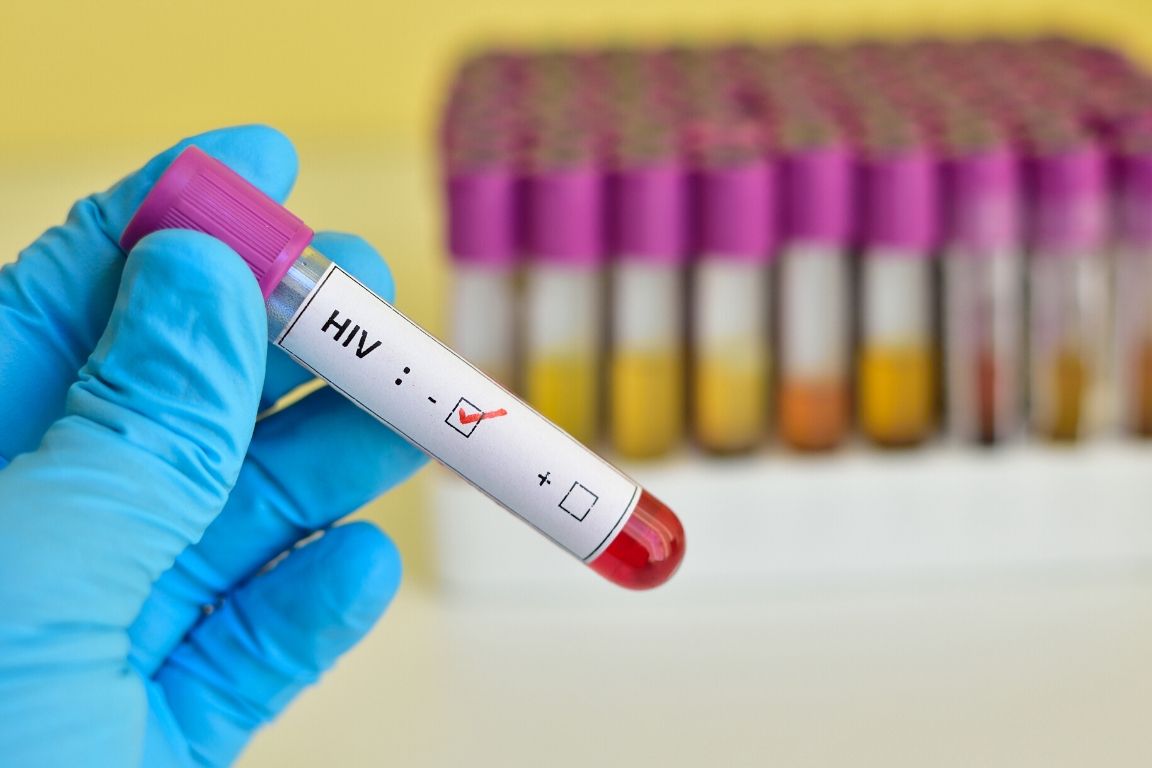
On the Road to an HIV Functional Cure: Lentivirus Modified CD4 T Cells Bring New Hope
Cell and Gene Therapy Product Developed For HIV Functional Cure Shows Promise in AGT and NIAID Preclinical Study
July 7, 2020
American Gene Technologies just published a comprehensive overview of their HIV Cure strategy in Molecular Therapy titled: Preclinical Development and Clinical-Scale Manufacturing of HIV Gag-Specific, Lentivirus Modified CD4 T Cells for HIV Functional Cure
The worldwide epidemic of HIV/AIDs in the 1980s and 1990s caused immeasurable suffering and, while now largely manageable, is still a major problem. Approximately 1.1 million people in the U.S. are living with HIV today, with an estimated 38,000 new cases each year (from HIV.gov).
Anti-retroviral therapies have no doubt been monumental in helping HIV patients live longer, better quality lives, but they have their shortcomings. Anti-retrovirals keep the HIV virus from replicating uncontrollably in our bodies, but they do not train our immune systems to destroy the virus in the same way a meningitis or flu vaccine would. The HIV infection also rebounds quickly when a patient stops taking their medications or when drug resistance arises, and no amount of conventional therapy has yet to overcome this problem. It is long past time for new treatment strategies that can eliminate the dependence on antiretroviral therapy and truly cure patients of HIV infection, and American Gene Technologies is currently pioneering a new cell therapy that can potentially do just that.
RELATED: Here’s Why the First Cure for HIV Could Emerge from Maryland
A New Way of Thinking
One of the main reasons there have not been any successful HIV vaccines to date is because HIV targets the cells that are critical for building immunity in your body. These cells, called “helper” T cells, detect foreign invaders and help to rally other immune cells to get rid of the intruder, similar to how a conductor leads an orchestra. During HIV infection, however, the HIV virus replicates in helper T cells and causes them to burst before they can rally together other immune cells, causing the immune orchestra to go awry.
It’s clear that HIV has evolved a smart strategy that allows it to persist in a patients’ body – in turn, drug discovers need to develop a smart solution to overcome HIV’s strategy. AGT is developing a new therapeutic, AGT-103-T, that can potentially repair an HIV patients’ immune response and stop the virus in its tracks.
About a year and a half ago, I had the pleasure of hearing AGT’s CEO, Jeff Galvin, talk about AGT’s unique approach to drug discovery. Having come from a technology background before setting the company’s roots in the BioHealth Capital Region, he equated AGT’s therapeutic approach to how an IT specialist would fix security bugs in your computer – by installing new software that addresses and corrects the issue at hand. In the case of AGT-103-T, T cells are first taken from a patient and “trained” to detect certain HIV-specific proteins, gearing them up to attack HIV. The cells are then grown to large numbers in the lab and equipped with new “software”, as Galvin analogizes it – genetic instructions that prevent HIV from entering and multiplying within cells. These super-charged T cells are then given back to the patient, giving their immune systems new protection against HIV and ridding the body of the virus.

First Preclinical Validation of AGT-103-T
Working alongside the National Institute of Allergy and Infectious Diseases, AGT recently published encouraging preclinical data on AGT-103-T in Molecular Therapy. In this study, AGT-103-T both specifically and potently reduced levels of CCR5 and blocked two segments of HIV RNA. CCR5 is an important cellular surface receptor that HIV uses to gain entry to the helper T cells. The blocked RNA should stop HIV from sneaking into the cells DNA and block HIV from being produced. Much of this data was produced from cells that were obtained from actual HIV+ patients. AGT-103-T protected these cells against HIV infection and prevented T cells from dying as a result of viral infection, providing the first line of evidence that AGT-103-T might be a good functional cure candidate. The team also optimized manufacturing protocols so that AGT would be able to produce large numbers of high-quality, protective, engineered T cells – a very important step when considering the therapeutic potential of a drug.
AGT’s team of drug discoverers are continuing to develop AGT-103-T as a potential curative vaccine against HIV, with eyes toward clinical trials. As an infectious disease immunologist myself, I’m incredibly eager to see what the future holds for this potential HIV cure and am continuously proud of the biotech coming out of BioHealth Capital Region!
To learn more about AGT-103-T, please visit their website: https://www.americangene.com/pipeline/hiv-aids/ or read the article in Molecular Therapy.
Summary of Study Results
- AGT-103-T specifically and potently decreased levels of CCR5 in evaluated cell lines and inhibited expression of HIV Tat and Vif proteins, which are needed for effective viral replication.
- Transduction of AGT-103-T into cells conferred protection against HIV and prevented viral replication in cells that had already been infected with HIV.
- AGT-103-T conferred HIV protection and reduced T cell depletion when transduced into CD4+ helper T cells purified from HIV patient PBMCs, including against HIV strains that do not depend on CCR5 for attachment.
- AGT successfully developed an optimized protocol for efficient clinical-scale manufacturing of highly enriched, HIV-specific CD4 T cells that makes application of this method feasible for treating HIV infection.
- About the Author
- Latest Posts
Sarah Ellinwood is BioBuzz’s Managing Editor. A scientist by training and a science communicator at heart, Sarah specializes in making complex concepts understandable, engaging, and exciting. She received her Ph.D. in molecular and cellular biology with a focus in infectious disease immunology from the University of Maryland and is passionate about all things related to scicomm, peer mentorship, and women in STEM.




